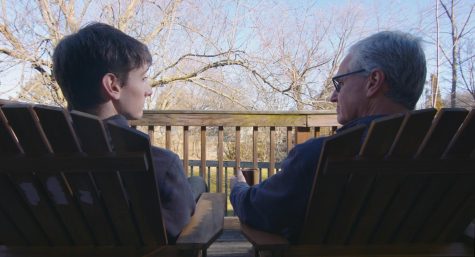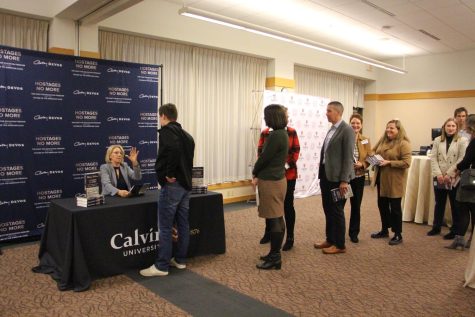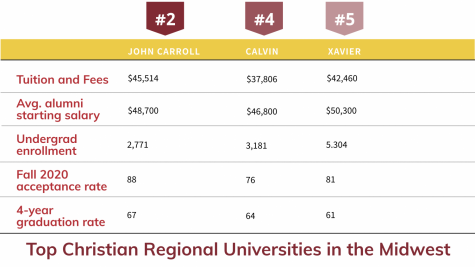A Pashon for Detroit Dirt
Last Friday afternoon, Calvin’s Science Building welcomed Detroit Dirt founder Pashon Murray, who spoke on “Entrepreneurial Composting for Better Soils, Circular Economics and Climate Stabilization.” The biology and economics departments, as well as the Center for Community Engagement and Global Learning, sponsored the event.
Murray opened with a grateful acknowledgment of her “foundations,” pointing out a small cluster of family members within her audience.
“They helped plant the seeds, and here’s” — she gestured to herself — “the harvest.”
While growing up in Grand Rapids, Murray often accompanied her father to the city’s landfill and experienced its growing waste piles firsthand. But she longed for another kind of trip: her family’s visits to her grandfather’s Alabama farm.
“Most kids want to go to Disney World. I was fascinated with the farm and the land,” she said.
After graduating from Grand Rapids Christian High in 1996, Murray studied Business Marketing at Texas Southern University. When she received her degree, she returned to Michigan, where an important choice awaited her.
“I was a business major. I knew I wanted to be an entrepreneur. But I knew, at the same time, I needed a purpose,” she reflected. Remembering the mounds of trash at the landfill, zero waste — a business buzzword in those days — was just the right motivator.
Murray’s work began with a contract with the YMCA to “repurpose and reuse” their waste. That effort created opportunities to consult for multiple companies, which in turn created opportunities to lobby in Washington D.C.
But, more and more, Murray felt herself drawn to Detroit.
“I felt like God was saying, ‘This is the city for you,’” she said. Around 2008, she started to meet with urban farmers, and, after some wrangling with local government, she received permission to use vacant land for composting.
Meanwhile, the Detroit Zoological Society, home to 3,300 animals, “was stockpiling their manure.” Large automotive companies, like General Motors (GM) – which feeds thousands of people each day – were creating truckload after truckload of food waste. Murray convinced both groups to give her their leftover organic materials.
Today, the organizations serve as two of Detroit Dirt’s largest partnerships — though the list has expanded far beyond these initial two. Motor City Brewery Works, the Hajek Firm, Astro Coffee and many more companies now contribute to the company’s growing compost heap.
“[For cities like Detroit,] sustainability is the key,” Murray stated. “You can bring them back to life using sustainable practices.”
Detroit Dirt’s success has also given Murray a platform as a spokesperson for the movement, a role that led her to the White House earlier this year.
“Seven or eight years ago, it was all about Detroit. I could never have seen myself coming together with 70 [sustainability experts in Washington],” she said. “We have a flawed food system. If there’s a country out there that says they’re doing it perfectly, they’re lying.”





